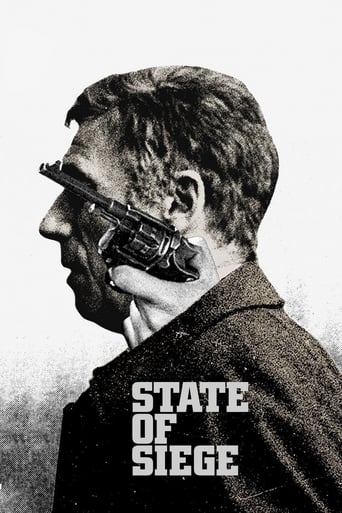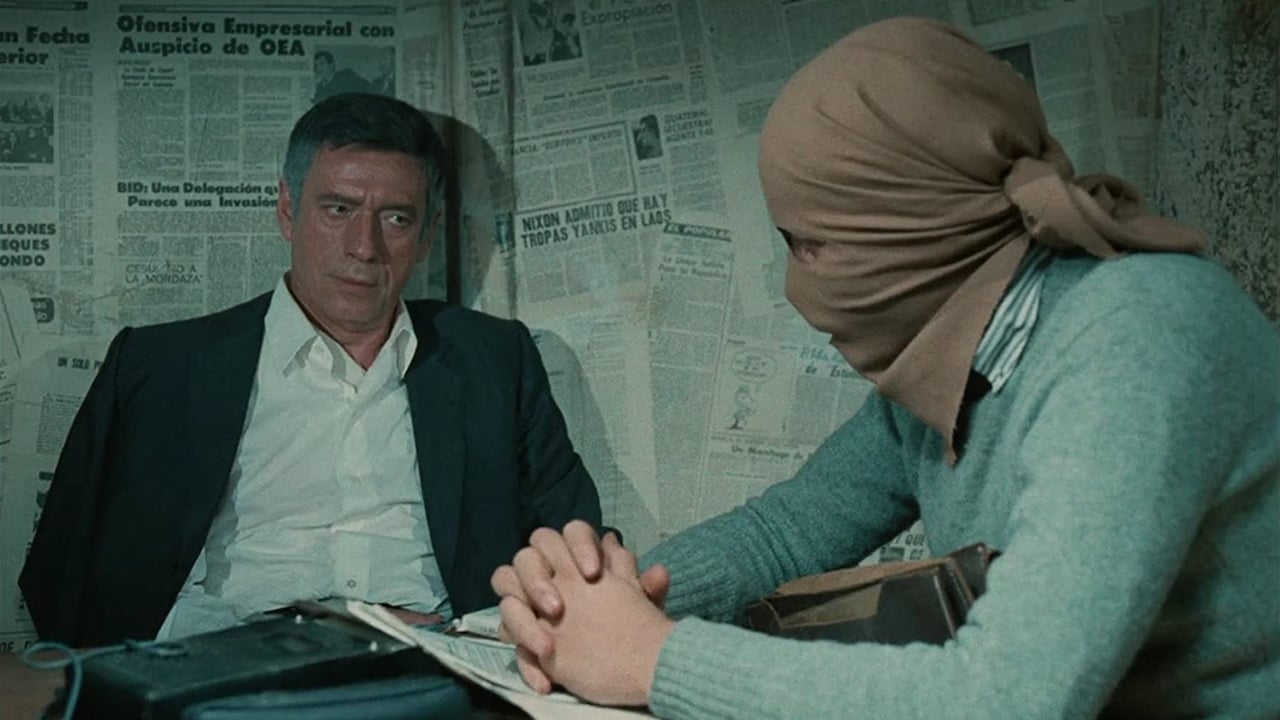GUENOT PHILIPPE
Yes, a Costa Gavras movie is always recognizable, as a Yves Boisset one, the ONLY two French directors who dared speaking of political actual facts which other directors were afraid to talk about. In France, it's not like in America, where film makers are free to speak of everything, see for instance ALL THE PRESIDENT'S MEN or EXECUTIVE ACTION, speaking of Watergate file or JFK assassination...In France, if you except Yves Boisset or Costa Gavras, no one, even today, would dare to speak of this. OK, I admit that Costa Gavras, in this film, doesn't talk of French events, nor as he did for Z, but when he made UN HOMME DE TROP or SECTION SPECIALE, that was directly related to French history. The Costa Gavras scheme is here the same as in Z. He uses an event to emphasize the political dimension just afterwards. Even in using a thriller topic, see Z for instance...I would have loved seeing Costa Gavras directing a film about war in Algeria and OAS organization. I don't think he did. I won't repeat what the other users told about this one, but I repeat, you deal here with a typical Costa Gavras' feature, which I could tell the director's name without seeing the opening credits.
BigCityMonk
Another great movie by Costa-Gavras. It's a great presentation of the situation is Latin America and the US involvement in Latin American politics. The facts might or might not be accurate but it is a fact that the US was deeply involved in coups and support of Latin American dictatorships.Despite this though the spirit of the movie follows the typical leftist/communist propaganda of the Cold War era. Costa-Gavras is a well-known communist sympathizer and his movies are always biased. For example he presents the US actions as brutal and inhumane, while representing Tupamaros' extremist activities as something positive.As it turned out it was a blessing for Uruguay and the rest of the Latin America that the US got involved. Europe is filled with poor East European prostitutes. I never heard of poor Uruguayan or Chilean girls prostituting themselves en masse as it happens in most East European countries. The US was fighting a dirty war and god bless us all the monster of Soviet Communism was defeated. It is unfortunate the US had to do what it did in Latin America (and elsewhere) but sometimes you need to play dirty. This is not an idealistic world as Costa-Gavras and Matamoros like to believe. Had Matamoros come to power in Uruguay, we would've had another Ukraine in Latin America.All in all this movie follows corrupt and bankrupt leftist ideology of times past and tries to pass it as idealistic and morally correct.
jlibby711
"State of Siege" is a terrific movie with the same look and feel as Costa-Gavras's other classic of the period, "Z." Set in Uruguay, "State of Siege" was actually filmed in Chile during the Allende presidency, and was ironically released shortly before the coup that overthrow Allende (the subject, of course, of "Missing," another Costa-Gavras film)."Z" was released on DVD last year in a newly restored version with excellent additional materials (modern interviews of Costa Gavras and Jorge Semprun, who wrote the screenplay, as well as interviews with the actors). My question is, when will "State of Siege" receive the same treatment? It is not available for sale in the US in any form, and is almost impossible to find as a rental. Now that "Z" is available in such an excellent edition, its about time "State of Siege" was too.
zardoz12
A fictionalized account of the early 1970's kidnapping of Daniel Mitrione by the Uruguayan Tupamaro terrorist group, "State of Siege" is almost a mirror image of the director's previous film "Z." Mitrione (here called Phillip Michael Santore and played by Yves Montrand) is ostensibly working for USAID, but in reality - a reality uncovered for the viewer as the Tupamaros hold recorded interrogations - he trains the Uruguayan police and associated hangers-on how to torture suspects electrically, run death squads, and destroy the Tupamoros. Outside of the terrorist safehouse a newspaper reporter witnesses how the US government covers for Santore, the Uruguayan crackdown on dissent, and the aftermath. The repression is carried to rediculous extremes; the police storm the national univercity. As the police enter a courtyard, a PA speaker begins playing a revolutionary anthem. They quicky destroy it, when another speaker then blares out the anthem. That too is destroyed, and then another. Somewhere out of sight another squakbox begins playing the anthem, and the police rush off camera.I call "Etat de siege" a mirror of "Z" because the picture takes place in flashback, the director is willing to hint where the picture is set at the beginning (the car which plays an important part has a Montevideo license plate), and the director is willing to say who is really backing the repression. Most importantly, however, is that the main character is the exact opposite of the politician in the previous film. Santore is willing to use midaeval means to keep South America an apolitical market for American goods and seller of raw materials for US industry, though he hides behind the banner of anticommunism. The politico in "Z" only wanted to keep Greece a non-nuclear power.


 AD
AD




